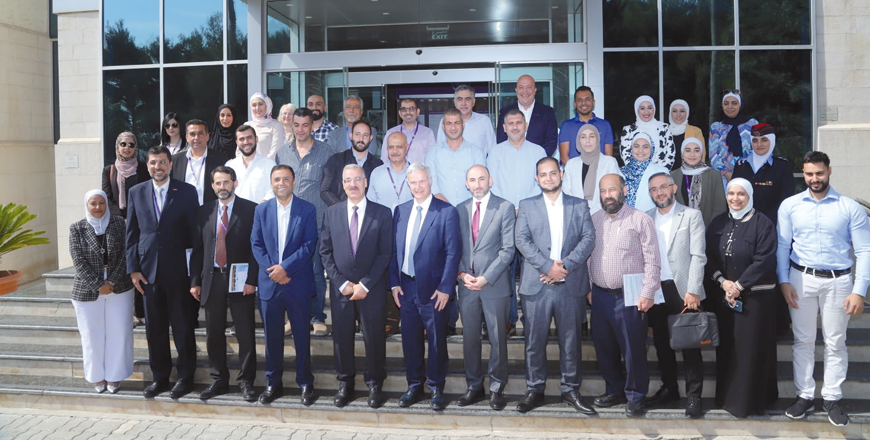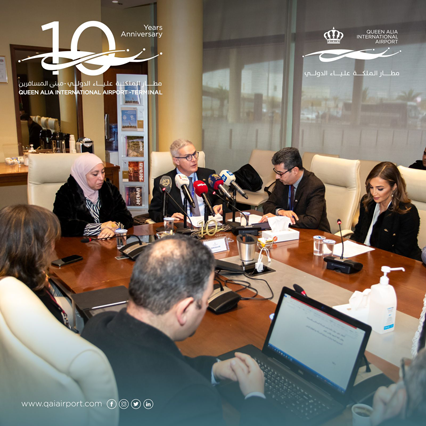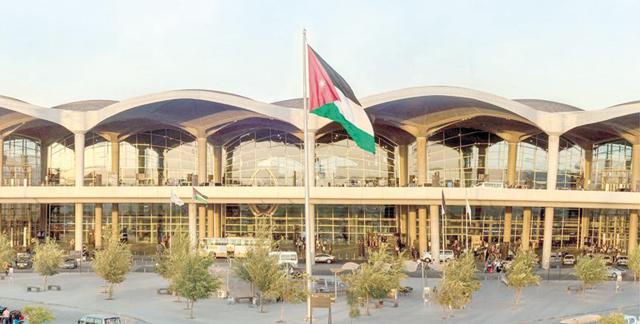You are here
QAIA achieves highest level of carbon emissions management accreditation
By JT - Oct 19,2022 - Last updated at Oct 19,2022

Members of The Royal Scientific Society, the Airport International Group and Queen Alia International Airport (QAIA) pose for a photo during celebration for QAIA’s Level 4+ carbon emissions management accreditation (Photo courtesy of Airport International Group)
AMMAN — The Royal Scientific Society, in cooperation with the Airport International Group, held a session to celebrate the Airport International Group (AIG) and the Queen Alia International Airport’s (QAIA) achievement of the Level 4+ (Transition) accreditation within the Airport Carbon Emissions Management Accreditation Programme.
The session began by emphasising the strategic partnership and technical support that the Royal Scientific Society has provided to AIG since 2011 in various environmental fields, such as water and air quality monitoring, noise measurements and the monitoring of wastewater — a byproduct of the flights and airport treatment plants.
AIG delivered a presentation highlighting the efforts behind the accreditation, as QAIA works towards becoming the first carbon-neutral airport in the region, according to a statement from the AIG.
The airport is the first in the Middle East and second in the Asia-Pacific to reach the highest level of the Airport Carbon Accreditation (ACA) Programme, with plans to achieve net-zero emissions by 2050.
Between 2012 and 2021, AIG successfully reduced its overall carbon dioxide emissions by approximately 25 per cent, with a special focus on energy conservation, which constitutes nearly 92 per cent of overall emission sources, said the statement.
Airport International Group CEO, Nicolas Claude said: “For nearly a decade, we have been implementing international standards and industry best practices in line with the ACA programme, the Paris Agreement and the UN Sustainable Development Goals to curb Queen Alia International Airport’s carbon footprint and, ultimately, achieve net-zero emissions by 2050.”
Rafat Assi, Vice President and Executive Director of the Sustainable Solutions Sector, stated that the Royal Scientific Society is a reference for research and development that is relied upon locally and regionally through its technical centres specialised in energy, the environment, water, construction research and information technology, and through more than 38 internationally and locally accredited laboratories.
Related Articles
AMMAN — Airport International Group (AIG) held its Environment, Social, Health and Safety (ESHS) Committee meeting on Wednesday.Secretary Ge
AMMAN — Celebrating the 10th anniversary since the inauguration of Queen Alia International Airport’s (QAIA) terminal building, HYPERL
AMMAN — The Airport International Group announced that Queen Alia International Airport (QAIA) has become the first in the Middle East, the
















